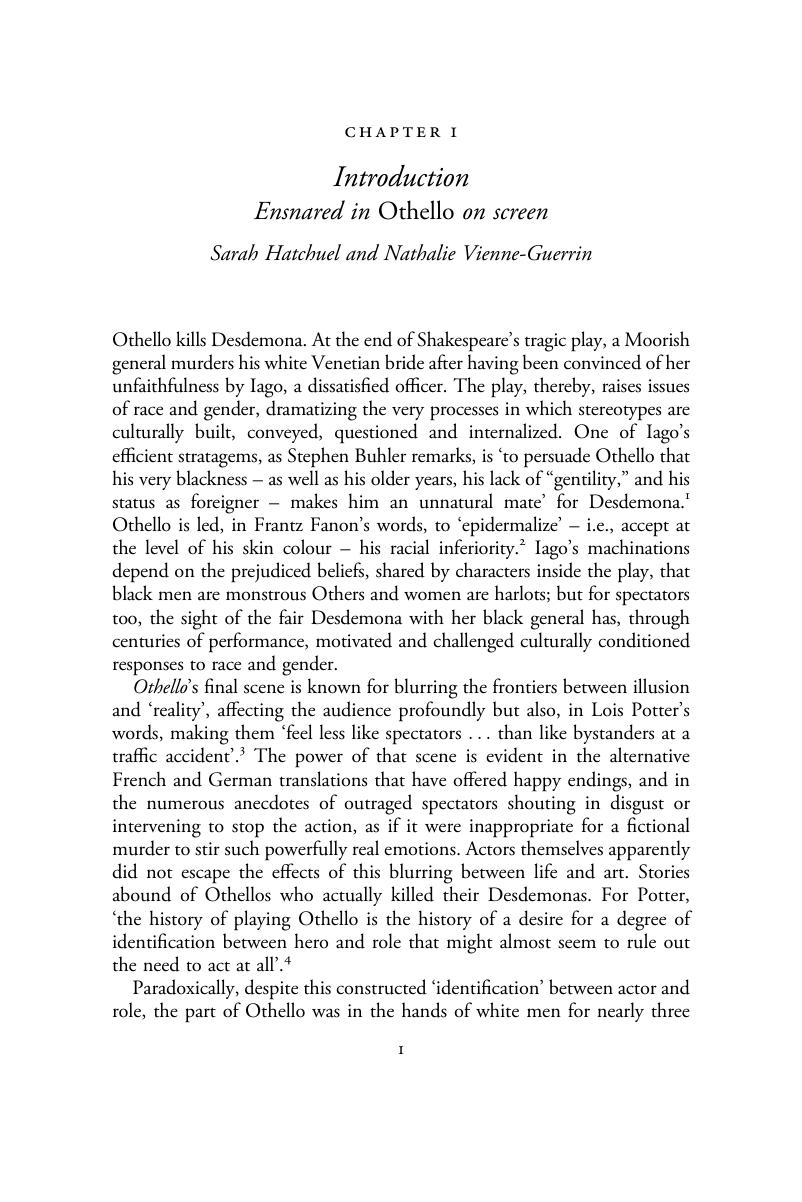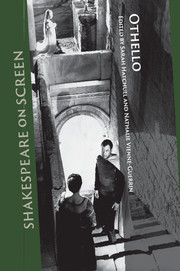Book contents
- Shakespeare on Screen: Othello
- Series page
- Shakespeare on Screen Othello
- Copyright page
- Dedication
- Contents
- Illustrations
- Notes on contributors
- Series editors’ preface
- Acknowledgements
- Chapter 1 Introduction
- Chapter 2 Othello on screen
- Chapter 3 Rethinking blackness
- Chapter 4 Othello retold
- Chapter 5 ‘Institutionally racist’
- Chapter 6 Intertextuality in Tim Blake Nelson's ‘O’
- Chapter 7 Indianizing Othello
- Chapter 8 Othello in Latin America
- Chapter 9 Othello in Québec
- Chapter 10 Anna's Sin and the circulation of Othello on film
- Chapter 11 Mirroring Othello in genre films
- Chapter 12 Othello in Spanish
- Chapter 13 Othello on screen
- Index
- References
Chapter 1 - Introduction
Ensnared in Othello on screen
Published online by Cambridge University Press: 05 July 2015
- Shakespeare on Screen: Othello
- Series page
- Shakespeare on Screen Othello
- Copyright page
- Dedication
- Contents
- Illustrations
- Notes on contributors
- Series editors’ preface
- Acknowledgements
- Chapter 1 Introduction
- Chapter 2 Othello on screen
- Chapter 3 Rethinking blackness
- Chapter 4 Othello retold
- Chapter 5 ‘Institutionally racist’
- Chapter 6 Intertextuality in Tim Blake Nelson's ‘O’
- Chapter 7 Indianizing Othello
- Chapter 8 Othello in Latin America
- Chapter 9 Othello in Québec
- Chapter 10 Anna's Sin and the circulation of Othello on film
- Chapter 11 Mirroring Othello in genre films
- Chapter 12 Othello in Spanish
- Chapter 13 Othello on screen
- Index
- References
Summary

- Type
- Chapter
- Information
- Shakespeare on Screen: Othello , pp. 1 - 23Publisher: Cambridge University PressPrint publication year: 2015
References
Works cited
- 1
- Cited by

